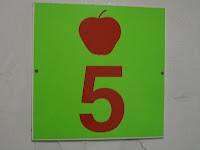Shakespeare and Mythology Final
The names ' Antony and Cleopatra' for many conjure up images of passionate lovers so devoted to one another that even their deaths cannot blight their love. Yet the picture painted by William Shakespeare in the very first act of his magnificent tragedy is not one of the lovers exalting in one another's arms but rather a more critical approach. Shakespeare manages to combine both theatrical staging with dialogue between the 'mutual pair' in order to offer a new perspective on the relationship of Antony and Cleopatra.
The first glimpse into the play provides a conversation not between the principle characters but instead between Demetrius and Philo, two friends of Antony. The very first word spoken is 'nay', foreshadowing the negative tone of Philo's concerns. He heavily criticizes Antony, claiming that Antony's devotion to Cleopatra is excessive. Philo uses Antony's eyes and heart as descriptions as to what has changed: his eyes, which in times past "glowed like plated Mars", now are fixed upon more earthly pleasures. His heart, once so large that his armor could not contain him, now is but a tool for the convenience of a gipsy. Antony is presented as almost god-like in past recounts - his eyes glowed with a heavenly light, just like Mars, the god of war. His heart was considered superhuman, so much so that ordinary soldier's armor could not hold it in. After Antony and Cleopatra's train enter, Philo commands Demetrius to "look, where they come: take but good note, and you shall see in him / The triple pillar of the world transformed / Into a strumpet's fool." Although directed to his friend, Philo's command is also aimed at the audience, who is now prepared to view Antony with a somewhat jaded eye. The dialogue between the lovers is watched unnoticed by Philo and Demetrius, and the audience is able to watch both pairs at the same time, mindful that Philo is watching the two for instances to enhance his argument. It is interesting to note that the first thing mentioned by Demetrius after their departure is not Antony's relationship with Cleopatra but rather his rapport with Caesar. He continues to add that Antony "approves of the common liar" of Rome, meaning that Antony's actions are so out of character that even one who never tells the truth has accurately described his pastimes in Egypt. The scene ends with the two friends parting ways, hoping "of better deeds to-morrow." At this point, the audience does as well, considering the grim picture that has been presented.
The dialogue between Antony and Cleopatra also deserves considerable mention. Cleopatra speaks first, asking "if it be love indeed, tell me how much", implying that Antony had just finished waxing poetic about his pure and eternal love for her. She seems to be testing him and encouraging his renewed proclamations of love. He satisfies her insecurities, claiming that one must "find out new heaven, / new earth" to measure the extent of his esteem. After the Attendant enters, Antony shows his disregard for his old life as a military commander, complaining that it "grates" him. Cleopatra responds flippantly, adding to th emasculation* that Philo had described minutes previously. She mentions two things in order to reduce his masculinity: the fact that his wife Fulvia may be angry at him (one imagines a meek, henpecked husband cowering before a tyrant wife) and the possibility that Caesar is giving him orders. In both scenarios, Antony is rendered impotent and the servant of another. Cleopatra continues to urge him to leave, as almost a test of his devotion to her alone. She is granted her wish, as Antony boldly asserts, "let Rome in Tiber melt, and the wide arch / of the ranged empire fall! Here is my space." Cleopatra calls this "excellent falsehood", being pleased that he has renounced Rome but not yet satisfied of his affections. She keeps denying him the pleasure of "Love and her soft hours" as a way of keeping Antony lusting after her, insisting rather that they "hear the ambassadors" which evokes no happiness for Antony and only burns his desire for his "wrangling queen". His response is that they should wander the streets for the sole reason being that "last night you did desire it". Though he attempts to exert command when he orders the Attendant to "speak not to us", the previous conversation has show the audience his complete subjugation to his queen.
The first scene of any play is crucial to 'set the stage' if you will for the action to follow. By presenting such an unequal balance of power as well as a critical commentary on the perceived degeneration of Antony's prowess, Shakespeare recounts a tale not of star-cross'd lovers but power struggles and the duties of love versus war.
* In regards to Antony's castration by Cleopatra, it is of interest to note in Philo's last line before the entrance of Cleopatra and Antony he claims that Antony has "become the bellows and the fan / To cool a gipsy's lust". The scene is then interrupted with Cleopatra and her servants, several of which are eunuchs and who are fanning her. This proximity of images could not be mere coincidence on Shakespeare's part.











